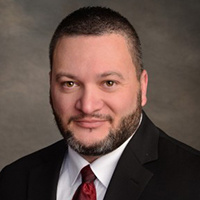Frontier Collection Lawyer, Michigan
Sponsored Law Firm
-
 x
x

Click For More Info:
-
Marrs & Terry, PLLC
6553 Jackson Road Ann Arbor, MI 48103» view mapBankruptcy & Debt Personalized, Efficient Counsel
Marrs & Terry, PLLC have been helping individuals face a variety of legal challenges, including bankruptcy, estate planning and administration, and family law.
800-862-7221
Not enough matches for Frontier Collection lawyer.
Below are all Frontier Bankruptcy & Debt lawyers.
Jeriamiah Lee Joseph
✓ VERIFIEDJeriamiah Joseph is the founding Member of Joseph Law – located at 18625 Centennial Road, Suite A, Marshall, MI 49068. Mr. Joseph is licensed to pra... (more)
Wesley Johnson Todd
✓ VERIFIEDWesley Todd originally joined the firm as an intern in 2008. He has been a shareholder of the firm since 2020. He was born in Kalamazoo, Michigan and ... (more)


 Tricia Terry Ann Arbor, MI
Tricia Terry Ann Arbor, MI AboutExperienced Michigan Lawyer
AboutExperienced Michigan Lawyer Articles
Articles


